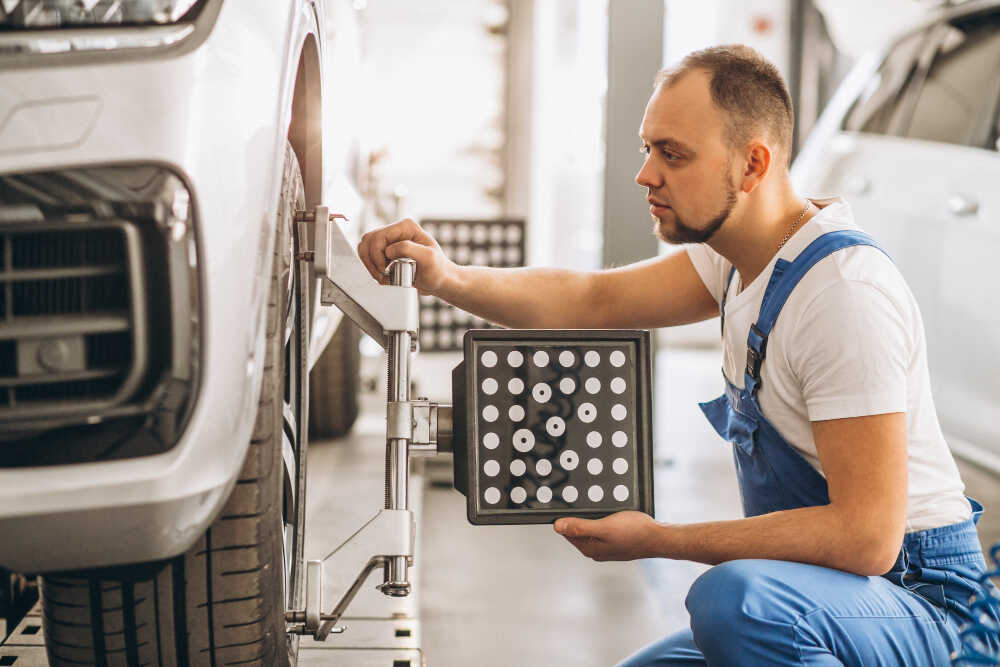
Your vehicle's alignment might not be something you think about every day, but it plays a crucial role in how your car drives and feels on the road. Proper alignment ensures that your wheels are working together efficiently, which can save you money, improve safety, and keep your car performing at its best. Here's why you should care about your vehicle's alignment and how it impacts your driving experience.
What is Alignment?
Simply put, alignment refers to the angle at which your wheels meet the road. When your car is aligned correctly, the tires point straight and are evenly balanced, allowing for smooth and stable driving. Misalignment occurs over time due to daily wear and tear, potholes, curbs, or even minor accidents.
Signs Your Alignment is Off
Misalignment doesn't always come with a flashing warning light, so knowing what to look for is important. Here are some common signs:
1. Uneven Tire Wear: Check your tires. If one side wears out faster than the other, it could be due to poor alignment.
2. Pulling to One Side: If your car drifts to the left or right when you're trying to drive straight, it's a red flag.
3. Steering Wheel Vibration: A shaky steering wheel isn't just annoying; alignment issues often cause it.
4. Crooked Steering Wheel: Does your steering wheel feel off-center when driving straight? That's another sign your alignment needs attention.
Why Proper Alignment Matters
1. Improves Fuel Efficiency
You may need to make additional journeys to the gas station since misaligned wheels might make your car work harder. A properly aligned vehicle rolls smoothly, reducing resistance and improving gas mileage.
2. Extends Tire Life
Tires are expensive, and replacing them too often can hurt your wallet. Proper alignment ensures even tire wear, so you get the most out of your investment.
3. Enhances Safety
Alignment isn't just about comfort—it's about safety. Poor alignment can make your car more challenging to control, especially during bad weather or sudden stops.
4. Boosts Overall Performance
When your alignment is spot on, your car feels like it's gliding on the road. You'll notice better handling, a smoother ride, and less wear on other components like the suspension.
The Cost of Ignoring Alignment
Ignoring alignment issues can lead to bigger, costlier problems down the road. Uneven tire wear can result in blowouts, while poor handling increases the risk of accidents. Addressing alignment early can save you from expensive repairs and potential safety risks.
When to Get an Alignment Check
Experts recommend checking your alignment every 6,000 miles or as specified in your car's manual. Also, if you hit a pothole or curb or see any of the previously listed warning signals, it's a good idea to get it inspected.
Proper alignment isn't just a "nice to have "; it's essential for your car's health and your safety. Regular alignment checks ensure that your vehicle performs efficiently, tires last longer, and you save money in the long run. The next time you visit the shop, ask about an alignment check—it's a small step with big benefits.